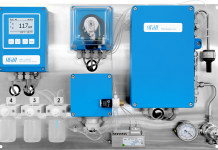By now you will have successfully submitted registration dossiers for any substances which you manufacture or import at >100 tonnes per annum, either as a Lead Registrant or as a Member of a Joint Registration.
More than likely you are now gearing up to register all your substances manufactured or imported at >1 tonne per annum by 2018. For those substances for which you have a registration number, the temptation is to think that’s it all over, job well done! Sadly this is unlikely to be the case.
The focus to date has indeed been on registration … obtaining that all important registration number. However, REACH is actually the “Regulation (…) concerning the Registration, Evaluation, Authorisation and Restriction of Chemicals”.
Those of you who registered substances at >1000 tonnes may well have had some experience of the Evaluation process; many of you will have no inkling as to what’s involved. Broadly speaking there are two distinct processes: Dossier Evaluation driven by ECHA and Substance Evaluation driven by Member States (MS) [the Community Rolling Action Plan (CoRAP)].
ECHA will check dossiers where a toxicological study has been proposed – in short, to see if this testing should be done or not. ECHA also perform a compliance check on at least 5% of submitted dossiers, selecting some dossiers at random but also using “concern-driven criteria”. Because the process is not totally random, it is highly likely that if you were to submit a dossier with a large number of toxicological end points filled using read-across, i.e., extrapolating data from a related substance, then it will be checked and you may receive a list of required updates needed to bring the dossier back into compliance.
Besides issues relating to read-across, ECHA compliance checks may query something as fundamental as the substance identity. For example, purity may have been defined rather broadly so that in ECHA’s opinion the registration actually encompasses two substances: a “high purity” monoconstituent and an “as-made/lower purity” grade multiconstituent or even UVCB.
The main message is to keep an eye on your REACH-IT account. Your REACH-IT account can be configured to send automatic update notice and should a valid email address which is regularly monitored. Even if you are not the lead registrant, it is extremely important to keep abreast of any compliance issues with your substance, not least because it could cost you money if, for example, additional testing is required by ECHA, a read-across justification needs to be rewritten or you find yourself “cast out” as your purity profile differs from that of the lead registrant.
Substance evaluation is not solely related to the individual registration dossier – other criteria such as aggregated tonnage across all registrants and use/exposure considerations also play a role. One possible outcome of substance evaluation via the CoRAP could be Restriction of a substance’s uses (see below). Therefore, although there is no legal obligation for a MS to discuss with registrants or vice versa, registrants would be well advised to discuss their substance with the relevant MS.
The aim of the Authorisation process is to control, restrict, and ideally eliminate the sale or use of Substances of Very High Concern (SVHC). There is a two-step process whereby initially a MS or ECHA proposes that a SVHC is added to the Candidate List (for authorisation). In the second step, a substance may be included in the Authorisation List itself. Once on this list, in general, a registrant must apply for authorisation to use or sell the substance and only then under clearly defined circumstances, e.g., only for one use in one industry sector with prescribed safeguards. The Restriction process also seeks to limit the use of a given substance but in this case a particular use is restricted up front and other uses should be acceptable.
The principal piece of advice regarding Authorisation and Restriction, as it was for Evaluation, is to stay informed and to act in a timely fashion. Assuming “job done” after Registration could have serious financial implications.













